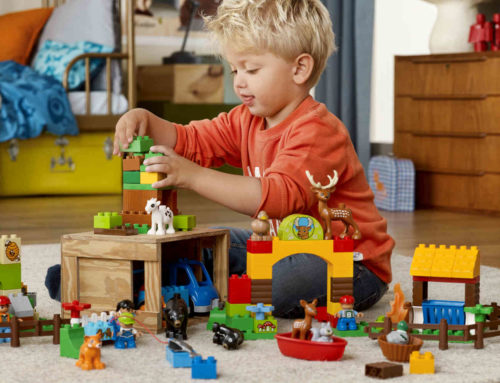When you have questions or concerns about your child’s communication development it can be hard to know where to turn.
Conflicting information and advice may be coming at you from all angles. Doctors, child and family health nurses, teachers, books, the internet and of course well meaning family and friends will all have an opinion on what is going on and what you should do about it. Some will make you feel that the situation warrants immediate attention whereas others will tell you to relax and not worry about it. What should you do?
The easiest, quickest and dare I say smartest thing to do is to ask a speech pathologist. No doubt some of you are thinking, “of course a speech pathologist is going to say see a speech pathologist” and you’re not wrong, but the reason is simple… communication is our thing.
If you want to talk to someone about cooking, interior design, accounting or German for beginners you’ll need to keep walking. I don’t know much, if anything at all about those topics (although I can tell you that in my experience “Prost!” seems to be all you need to know to have a fantastic time in Germany!). But children’s communication development and disorders – that I know! That’s my thing. You wouldn’t ask a pilot to have a look at your funky toenail while a podiatrist takes control of the plane would you?
What are my options?
When it comes to finding a speech pathologist that’s the right fit for your family, there are a few options. The options will differ however, depending on where you live, the age of your child and what your concerns are.
For instance, there are some government speech pathology services available, which are free but there is a waiting list. These services are provided during business hours Monday to Friday. In most cases you do not need a doctor’s referral to place your child on the waiting list. As a result of the importance and benefits of early intervention, these services tend to be targeted to young children, with services for children who have already started school being more limited.
Another option is to access services from a private speech pathologist. Private clinicians charge a fee for their services. Some have a clinic or rooms that you attend for your appointments. Others offer a mobile service where they come to you and provide therapy in the home, childcare or school setting. Some private clinicians offer after hours and weekend appointments.
You do not need a doctor’s referral, however some children may be eligible for a Medicare rebate for a limited number of sessions. In this instance you will need to have the relevant paperwork completed by your GP before you can make a claim. Depending on your level of cover, some private health funds also offer speech pathology rebates.
When choosing a private speech pathologist make sure that they are a member of Speech Pathology Australia (SPA). This is the national peak body for the speech pathology profession in Australia and is the only way to ensure that the therapist you are seeing has the necessary level of training and meets the requirements to be practising in Australia.
If you go to their website www.speechpathologyaustralia.org.au you can use their “Find a Speech Pathologist” tool to search for clinicians in your area.
Furthermore, Speech Pathology Australia recommends the following minimum requirements when choosing a private speech pathologist:
The speech pathologist must
- Be a practising member of SPA
- Have Certified Practising Speech Pathologist (CPSP) status
- Have current (and an adequate level of) Professional Indemnity Insurance
- Have the necessary provider numbers for providing Medicare or Private Health fund rebatable services
- Be an approved provider if providing FaHCSIA funded services
- Have the necessary checks as required (e.g. working with children’s check)
Another important factor to consider when choosing a speech pathologist, is whether their personality and style complements your child’s personality and temperament. There is no right or wrong, but sometimes you just find some people to be a “better fit” for your family and that’s ok. You need to feel comfortable with your speech pathologist so that you can work together to help your child.
If you’re wondering how your child’s communication skills compare to what would typically be expected for their age, have a look at our 10 red flags of speech and language development or Speech and Language Development Checklists for Primary School Children to get a bit more of an idea.
Remember, if you have any questions or concerns about your child’s talking, listening or reading skills, there is no harm in giving a speech pathologist a call. There is no cost and no obligation – just a chance for you to discuss your concerns. We’ll be able to let you know what’s normal and what’s not and give you options about what to do next, as well as strategies and tips to try at home. What have you got to lose?
Don’t forget to Like Modern Speechie on Facebook for more information and tips to help your child be the best communicator they can be!






